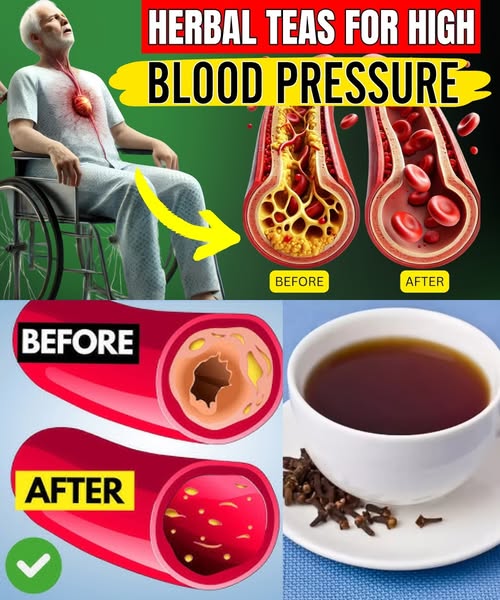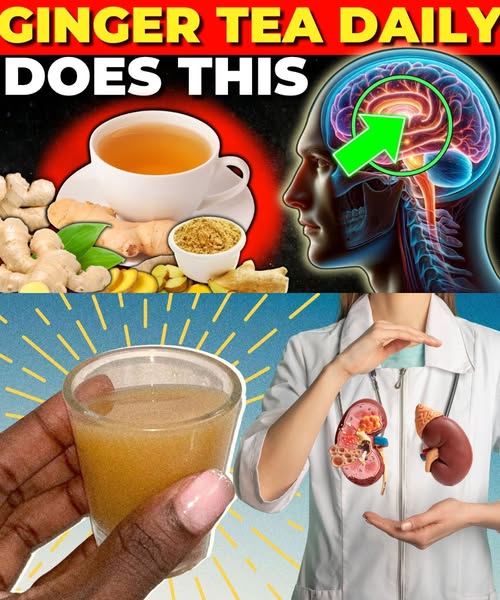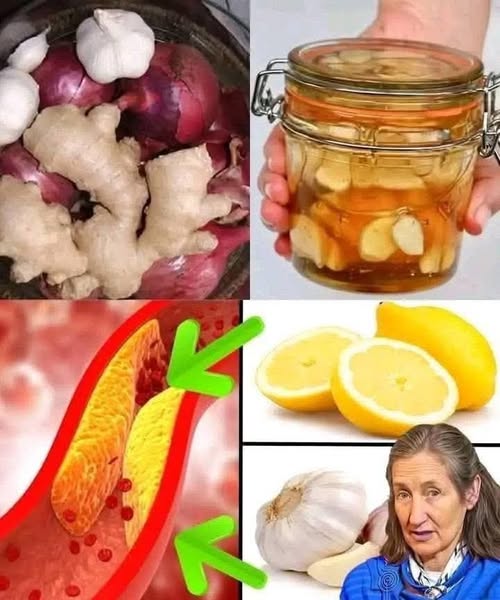Introduction: The Natural Power of Herbs in Cardiovascular Health

In today’s high-stress, fast-paced world, heart health is more critical than ever. With cardiovascular disease being the leading cause of death globally, many are turning to natural, preventative remedies. Among these, herbal teas have gained tremendous attention for their ability to lower blood pressure and unclog arteries—without the side effects of medication.
But not all herbal teas are created equal. Some are particularly potent in promoting better circulation, reducing inflammation, and aiding the removal of arterial plaque. If you’re looking to take control of your heart health, this guide is your roadmap.
This blog will explore 8 scientifically supported herbal teas that are powerful, effective, and easy to incorporate into your daily routine. You’ll also find answers to the most frequently asked questions, plus practical tips to get started.
Let’s dive into nature’s pharmacy and discover how these teas can support your long-term cardiovascular health.
🌱1. Hibiscus Tea: The “Blood Pressure Buster”
Why It Works:
Hibiscus tea, made from the deep-red petals of the hibiscus flower, is rich in antioxidants like anthocyanins and polyphenols, which help dilate blood vessels and improve circulation.
Clinical Insight:
A study published in The Journal of Nutrition found that drinking 3 cups of hibiscus tea daily significantly reduced systolic blood pressure in people with mild hypertension.
Key Benefits:
- Lowers systolic and diastolic blood pressure
- Fights oxidative stress
- Helps reduce LDL cholesterol buildup
Best Time to Drink:
Morning or early afternoon—avoid bedtime, as its mild diuretic effect could disrupt sleep.
🍵2. Green Tea: The Artery Protector
Why It Works:
Packed with catechins, green tea helps reduce arterial stiffness and prevents LDL oxidation, which is crucial in preventing plaque formation.
Clinical Insight:
According to a study in the Archives of Internal Medicine, consuming green tea regularly is linked with lower mortality rates from cardiovascular disease.
Key Benefits:
- Improves endothelial function
- Reduces bad cholesterol
- Enhances metabolic rate
Best Time to Drink:
Mid-morning or early afternoon. Avoid pairing with meals rich in iron, as it may inhibit absorption.
🌿3. Garlic Tea: The Natural Vasodilator
Why It Works:
Garlic contains allicin, a compound known to relax blood vessels and improve blood flow. It also reduces arterial plaque buildup.
Clinical Insight:
Research published in The Journal of Nutrition confirmed that aged garlic extract reduces coronary artery calcification and supports arterial elasticity.
Key Benefits:
- Naturally lowers blood pressure
- Breaks down arterial plaque
- Boosts nitric oxide production
Best Time to Drink:
Early morning on an empty stomach for best absorption.
🌼4. Chamomile Tea: The Stress Reliever for Blood Pressure
Why It Works:
Chronic stress elevates cortisol, which contributes to high blood pressure. Chamomile is rich in apigenin, a compound that soothes the nervous system and lowers cortisol levels.
Key Benefits:
- Reduces anxiety and stress-related hypertension
- Enhances sleep quality
- Provides anti-inflammatory benefits
Best Time to Drink:
30 minutes before bedtime for a calming night’s rest.
🌾5. Rooibos Tea: The Caffeine-Free Heart Booster
Why It Works:
Rooibos is packed with aspalathin, a unique antioxidant that improves vascular function and helps regulate hormones linked to blood pressure.
Clinical Insight:
A South African study found that rooibos tea can significantly lower both systolic and diastolic blood pressure, especially in people at risk for hypertension.
Key Benefits:
- Balances angiotensin-converting enzyme (ACE) activity
- No caffeine, making it suitable for evening consumption
- Boosts heart and liver health
Best Time to Drink:
Any time of the day—especially effective post-meal to improve digestion and circulation.
🍋6. Lemon Balm Tea: The Gentle Heart Tonic
Why It Works:
This mild, lemon-scented herb contains rosmarinic acid, which has been found to improve arterial flow and reduce stress-induced blood pressure spikes.
Key Benefits:
- Improves mood and reduces cortisol
- Enhances blood vessel elasticity
- Mild sedative effect for better sleep
Best Time to Drink:
Late afternoon or evening to wind down after a stressful day.
🌰7. Ginger Tea: The Anti-Inflammatory Artery Cleanser
Why It Works:
Ginger’s bioactive compounds—particularly gingerol—act as natural anti-inflammatories that reduce vascular inflammation and enhance circulation.
Clinical Insight:
A study in the Nutrition Journal revealed that daily ginger consumption correlates with a 13% lower risk of high blood pressure.
Key Benefits:
- Reduces inflammation in arterial walls
- Improves cholesterol levels
- Boosts overall cardiovascular performance
Best Time to Drink:
After meals to aid digestion and improve postprandial blood pressure.
🌿8. Turmeric Tea: The Golden Elixir for Arterial Healing
Why It Works:
Curcumin—the active ingredient in turmeric—is a powerful antioxidant and anti-inflammatory compound that helps reduce arterial plaque and improve endothelial function.
Clinical Insight:
A British Journal of Nutrition study shows that curcumin improves vascular endothelial function, which is vital in preventing heart disease.
Key Benefits:
- Combats free radicals
- Enhances arterial flexibility
- Prevents atherosclerosis
Best Time to Drink:
Before bedtime, ideally mixed with black pepper (to boost absorption) and coconut milk.
🔍Frequently Asked Questions (FAQs)
Q1: Can herbal teas really lower blood pressure without medication?
Yes. While not a replacement for prescribed treatments, many herbal teas have clinically proven effects in lowering blood pressure and improving vascular health. However, they should be used in conjunction with medical advice, especially if you’re on antihypertensive medication.
Q2: How quickly do herbal teas affect blood pressure?
Some effects (like calming the nervous system) can be felt within minutes, while measurable blood pressure reductions may take 2–4 weeks of consistent daily use.
Q3: How many cups should I drink per day?
Generally, 2–3 cups daily is effective and safe for most herbal teas. However, always start slow and consult with a healthcare provider if you have health conditions.
Q4: Are there any side effects or risks?
While herbal teas are generally safe, some may interact with medications (especially blood thinners, diuretics, or ACE inhibitors). Avoid excessive intake, and be cautious if you’re pregnant or breastfeeding.
Q5: Can I combine these teas?
Yes, but with care. Combining complementary herbs like hibiscus + ginger or turmeric + chamomile can amplify benefits. Avoid combining too many at once to monitor individual effects.
🧠Why This Matters: The Bigger Picture
The global prevalence of high blood pressure is staggering—1 in 3 adults suffers from it, according to the World Health Organization (WHO). What’s even more concerning is that most people are unaware of their condition until it’s too late.
Rather than waiting for prescription drugs to do the work, integrating daily, natural solutions like herbal teas can make a world of difference. They address the root causes: inflammation, stress, poor circulation, and oxidized cholesterol.
And unlike pharmaceutical drugs, these teas often come with bonus benefits—better digestion, reduced anxiety, improved sleep, and enhanced immunity.
✅Actionable Tips: How to Make the Most of These Teas
- Buy Organic, High-Quality Teas – Pesticide-free teas are more potent and safer for long-term use.
- Use Fresh, Filtered Water – The minerals in tap water may interfere with extraction.
- Steep Properly – Most herbal teas require 5–10 minutes of steeping for maximum benefits.
- Avoid Adding Sugar – Use honey, cinnamon, or lemon instead to enhance flavor without raising blood pressure.
- Create a Ritual – Consistency is key. Make tea time a daily self-care routine.
- Track Your Progress – Monitor your blood pressure weekly to observe improvements.
📝Conclusion: Small Sips, Big Impact
You don’t need a complete lifestyle overhaul to support your heart health—just start with a cup.
These 8 herbal teas offer a powerful, natural, and enjoyable way to lower your blood pressure, unclog arteries, and protect your heart—one sip at a time. Whether you’re looking to prevent cardiovascular issues or support current treatments, incorporating these scientifically backed herbal infusions into your daily routine is a wise and effective step.
Your heart is in your hands. Choose nature’s wisdom. Choose healing. Choose health—starting today.


